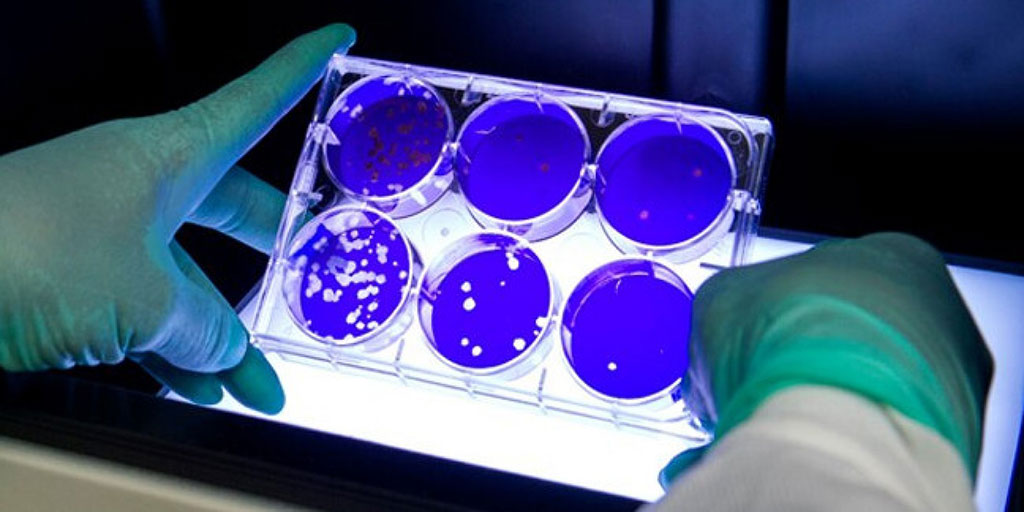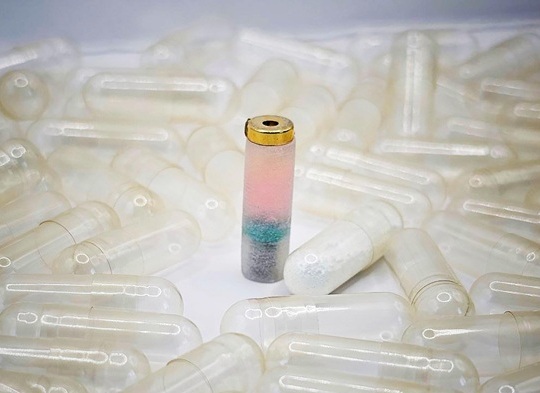Novartis Collaborates with Life Sciences Companies for Development of COVID-19 Vaccines and Diagnostics
|
By HospiMedica International staff writers Posted on 31 Mar 2020 |

Illustration
Novartis AG (Basel, Switzerland) and a consortium of life sciences companies have entered into a collaboration to accelerate the development, manufacture and delivery of vaccines, diagnostics, and treatments for COVID-19 in response to the pandemic. The industry brings a range of assets, resources, and expertise needed to identify effective and scalable solutions to the pandemic that is affecting billions worldwide. The companies participating in the collaboration include BD, bioMérieux, Boehringer Ingelheim, Bristol-Myers Squibb, Eisai, Eli Lilly, Gilead, GSK, Johnson & Johnson, Merck (known as MSD outside the US and Canada), Merck KGaA, Novartis, Pfizer, and Sanofi.
Following a conference call with the leadership of the Bill & Melinda Gates Foundation earlier this month, the companies are now working to identify concrete actions that will accelerate treatments, vaccines, and diagnostics to the field. As a first step, 15 companies have agreed to share their proprietary libraries of molecular compounds that already have some degree of safety and activity data – with the COVID-19 Therapeutics Accelerator launched by the Gates Foundation, Wellcome, and Mastercard recently to quickly screen them for potential against COVID-19. Successful hits would move rapidly into in vivo trials in as little as two months.
The COVID-19 Therapeutics Accelerator will play a catalytic role by accelerating and evaluating new and repurposed drugs and biologics to treat patients with COVID-19 in the immediate term, and other viral pathogens in the longer-term. The Accelerator will have an end-to-end focus, from drug pipeline development through manufacturing and scale-up. The Accelerator will pursue several aspects of the development cycle to streamline the pathway from candidate product to clinical assessment, use, and manufacturing. To identify candidate compounds, the Accelerator will take a three-pronged approach: testing approved drugs for activity against COVID-19, screening libraries of thousands of compounds with confirmed safety data, and considering new investigational compounds and monoclonal antibodies. Drugs or monoclonal antibodies that pass initial screening would then be developed by an industry partner. The biotech and pharmaceutical industries will be critical partners, bringing their compound libraries and clinical data to the collaboration and lending commercialization and other expertise that will be required to scale up successful drugs and monoclonal antibodies.
“This is an encouraging start in a critical area because if any of these compounds are shown to be effective against COVID-19 it dramatically accelerates the path to product approval and scale up,” said Mark Suzman, chief executive officer of the Bill & Melinda Gates Foundation. “While each of the partners will also be pursuing other efforts in partnership with national governments and other partners, it is a great example of why we are optimistic that this unprecedented collaboration will provide a platform for a fundamentally different kind of partnership to help address this global health emergency.”
Related Links:
Novartis AG
Following a conference call with the leadership of the Bill & Melinda Gates Foundation earlier this month, the companies are now working to identify concrete actions that will accelerate treatments, vaccines, and diagnostics to the field. As a first step, 15 companies have agreed to share their proprietary libraries of molecular compounds that already have some degree of safety and activity data – with the COVID-19 Therapeutics Accelerator launched by the Gates Foundation, Wellcome, and Mastercard recently to quickly screen them for potential against COVID-19. Successful hits would move rapidly into in vivo trials in as little as two months.
The COVID-19 Therapeutics Accelerator will play a catalytic role by accelerating and evaluating new and repurposed drugs and biologics to treat patients with COVID-19 in the immediate term, and other viral pathogens in the longer-term. The Accelerator will have an end-to-end focus, from drug pipeline development through manufacturing and scale-up. The Accelerator will pursue several aspects of the development cycle to streamline the pathway from candidate product to clinical assessment, use, and manufacturing. To identify candidate compounds, the Accelerator will take a three-pronged approach: testing approved drugs for activity against COVID-19, screening libraries of thousands of compounds with confirmed safety data, and considering new investigational compounds and monoclonal antibodies. Drugs or monoclonal antibodies that pass initial screening would then be developed by an industry partner. The biotech and pharmaceutical industries will be critical partners, bringing their compound libraries and clinical data to the collaboration and lending commercialization and other expertise that will be required to scale up successful drugs and monoclonal antibodies.
“This is an encouraging start in a critical area because if any of these compounds are shown to be effective against COVID-19 it dramatically accelerates the path to product approval and scale up,” said Mark Suzman, chief executive officer of the Bill & Melinda Gates Foundation. “While each of the partners will also be pursuing other efforts in partnership with national governments and other partners, it is a great example of why we are optimistic that this unprecedented collaboration will provide a platform for a fundamentally different kind of partnership to help address this global health emergency.”
Related Links:
Novartis AG
Latest COVID-19 News
- Low-Cost System Detects SARS-CoV-2 Virus in Hospital Air Using High-Tech Bubbles
- World's First Inhalable COVID-19 Vaccine Approved in China
- COVID-19 Vaccine Patch Fights SARS-CoV-2 Variants Better than Needles
- Blood Viscosity Testing Can Predict Risk of Death in Hospitalized COVID-19 Patients
- ‘Covid Computer’ Uses AI to Detect COVID-19 from Chest CT Scans
- MRI Lung-Imaging Technique Shows Cause of Long-COVID Symptoms
- Chest CT Scans of COVID-19 Patients Could Help Distinguish Between SARS-CoV-2 Variants
- Specialized MRI Detects Lung Abnormalities in Non-Hospitalized Long COVID Patients
- AI Algorithm Identifies Hospitalized Patients at Highest Risk of Dying From COVID-19
- Sweat Sensor Detects Key Biomarkers That Provide Early Warning of COVID-19 and Flu
- Study Assesses Impact of COVID-19 on Ventilation/Perfusion Scintigraphy
- CT Imaging Study Finds Vaccination Reduces Risk of COVID-19 Associated Pulmonary Embolism
- Third Day in Hospital a ‘Tipping Point’ in Severity of COVID-19 Pneumonia
- Longer Interval Between COVID-19 Vaccines Generates Up to Nine Times as Many Antibodies
- AI Model for Monitoring COVID-19 Predicts Mortality Within First 30 Days of Admission
- AI Predicts COVID Prognosis at Near-Expert Level Based Off CT Scans
Channels
Critical Care
view channel
AI Heart Attack Risk Assessment Tool Outperforms Existing Methods
For decades, doctors have relied on standardized scoring systems to assess patients with the most common type of heart attack—non-ST-elevation acute coronary syndrome (NSTE-ACS). The GRACE score, used... Read more
'Universal' Kidney to Match Any Blood Type
Blood-type incompatibility has long been one of the greatest obstacles in organ transplantation, forcing thousands of patients—particularly those with type O blood—to wait years longer for compatible donors.... Read moreSurgical Techniques
view channel
Minimally Invasive Endoscopic Surgery Improves Severe Stroke Outcomes
Intracerebral hemorrhage, a type of stroke caused by bleeding deep within the brain, remains one of the most challenging neurological emergencies to treat. Accounting for about 15% of all strokes, it carries... Read more
Novel Glue Prevents Complications After Breast Cancer Surgery
Seroma and prolonged lymphorrhea are among the most common complications following axillary lymphadenectomy in breast cancer patients. These postoperative issues can delay recovery and postpone the start... Read morePatient Care
view channel
Revolutionary Automatic IV-Line Flushing Device to Enhance Infusion Care
More than 80% of in-hospital patients receive intravenous (IV) therapy. Every dose of IV medicine delivered in a small volume (<250 mL) infusion bag should be followed by subsequent flushing to ensure... Read more
VR Training Tool Combats Contamination of Portable Medical Equipment
Healthcare-associated infections (HAIs) impact one in every 31 patients, cause nearly 100,000 deaths each year, and cost USD 28.4 billion in direct medical expenses. Notably, up to 75% of these infections... Read more
Portable Biosensor Platform to Reduce Hospital-Acquired Infections
Approximately 4 million patients in the European Union acquire healthcare-associated infections (HAIs) or nosocomial infections each year, with around 37,000 deaths directly resulting from these infections,... Read moreFirst-Of-Its-Kind Portable Germicidal Light Technology Disinfects High-Touch Clinical Surfaces in Seconds
Reducing healthcare-acquired infections (HAIs) remains a pressing issue within global healthcare systems. In the United States alone, 1.7 million patients contract HAIs annually, leading to approximately... Read moreHealth IT
view channel
Printable Molecule-Selective Nanoparticles Enable Mass Production of Wearable Biosensors
The future of medicine is likely to focus on the personalization of healthcare—understanding exactly what an individual requires and delivering the appropriate combination of nutrients, metabolites, and... Read moreBusiness
view channel
Philips and Masimo Partner to Advance Patient Monitoring Measurement Technologies
Royal Philips (Amsterdam, Netherlands) and Masimo (Irvine, California, USA) have renewed their multi-year strategic collaboration, combining Philips’ expertise in patient monitoring with Masimo’s noninvasive... Read more
B. Braun Acquires Digital Microsurgery Company True Digital Surgery
The high-end microsurgery market in neurosurgery, spine, and ENT is undergoing a significant transformation. Traditional analog microscopes are giving way to digital exoscopes, which provide improved visualization,... Read more
CMEF 2025 to Promote Holistic and High-Quality Development of Medical and Health Industry
The 92nd China International Medical Equipment Fair (CMEF 2025) Autumn Exhibition is scheduled to be held from September 26 to 29 at the China Import and Export Fair Complex (Canton Fair Complex) in Guangzhou.... Read more

















